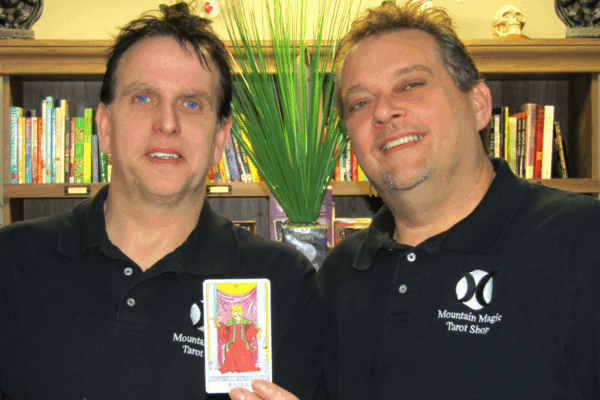It shouldn’t take a lawsuit to get local officials to comply with the Constitution, but once again, it did.
The Town of Richlands used its powers over land use planning to ban Mark Mullins from reading Tarot at his business, Mountain Magic and Tarot. The ACLU of Virginia sued Richlands on behalf of Mr. Mullins, and as a result of a recent settlement approved in that case, the town can no longer discriminate against Tarot reading shops. The settlement agreement, which a federal court approved on Monday, represents a victory for free speech, religious freedom and equality under the law, and should serve as a lesson to other localities considering whether to use their land use powers to favor some religions over others. Those who have unorthodox religious beliefs are entitled to equal treatment as people who practice mainstream religions.
Freedom of speech and religion apply to everyone, not just those with favored views or adherents of mainstream religions.
Mr. Mullins has been reading Tarot for upwards of 30 years and considers the practice a central part of his religious and spiritual life — one that he wanted to share with others in his community and make a part of his livelihood by opening a Tarot shop. But between 2017 and 2018, town officials repeatedly declined to give him the license and permit needed to open a Tarot shop or advertise himself as a Tarot reader. At first, officials claimed that Mr. Mullins had not undertaken the necessary procedures to amend the town’s zoning ordinance to allow for Tarot readers in Richlands. But when he filed a request to amend the zoning ordinance, the town held a raucous hearing at which local residents and church leaders cited biblical scripture in warning town leaders against allowing Tarot readers in Richlands. After the hearing, the town declined to amend its zoning ordinance to permit Tarot shops in Richlands, curiously noting that it was a “business decision,” without further elaboration.
When it became clear the town would not revisit its decision, the ACLU of Virginia sued on Mr. Mullins’ behalf. We alleged the town had engaged in content- and viewpoint-based discrimination in violation of the First Amendment of the United States Constitution; that its licensing scheme provided town officials with such unbridled discretion that it amounted to an unconstitutional prior restraint on Mr. Mullins’ speech; that it violated his right to free exercise of religion and right not to be discriminated against on the basis of his religion; and his right to equal protection under the law.
Not long after we filed the lawsuit, the town backed down from its earlier stances. Under the settlement agreement, town officials agreed to amend its zoning ordinance to allow for Tarot reading and similar practices on equal terms as other types of businesses. The town granted Mr. Mullins a license and zoning permit that allow him to read Tarot as part of his business, and agreed not to place any additional restrictions on his ability to advertise his services. Mr. Mullins also received a monetary settlement as part of the lawsuit. A federal court will retain jurisdiction to enforce the agreement in the event the town backpedals on its promises.
The settlement is a win for Mr. Mullins and for the First Amendment. Freedom of speech and religion apply to everyone, not just those with favored views or adherents of mainstream religions. Localities may not ban speech or religious practices that their officials or town residents find unconventional or unsavory, nor can they impose onerous land use restrictions that prevent businesses or religious institutions that engage in such speech a reasonable opportunity to open and operate. When they do, the ACLU of Virginia stands ready to sue.


